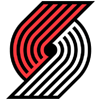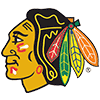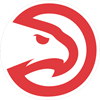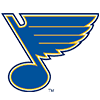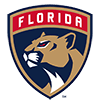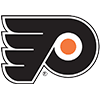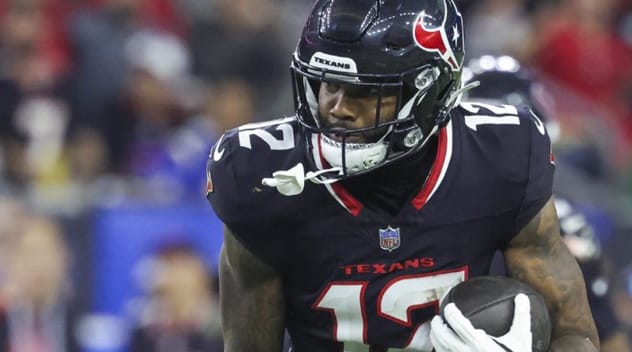This article will go game by game for the Sunday main slate looking at the top wide receivers from an offense and, based on the inside/outside and left/right splits in the alignment data of those receivers, identify the cornerbacks most likely to face them in man coverage. The corners named will parenthetically cite the rank of their coverage grade from Pro Football Focus from the 2019 season.
Receivers very rarely see the same corner every play, be it due to formational quirks or zone coverage calls by the defense, so a receiver's fortunes depend on much more than just the quality of the corner they're likely to see the most in a given game. Even against a bad corner, a good receiver can be denied the opportunity if the pass rush or something else outside his control complicates things. But it's part of the puzzle, and it's worth keeping track of.
Receivers are left with an Upgrade, Downgrade, or Even verdict based on their projected matchup. This shouldn't be read as 'good' or 'bad' but rather a measured tweak from the receiver's baseline projection.
Atlanta vs Seattle
ATLANTA WIDE RECEIVERS
The Seahawks traditionally don't use a shadow corner, so the matchups for Julio Jones and Calvin Ridley should be determined by where they line up. In 2019 the Seahawks used Shaquill Griffin (76.0 PFF) on the left side, meaning he'll almost always face the right-most receiver. Quinton Dunbar (89.5 PFF), assuming he plays through his insane off-field legal
This article will go game by game for the Sunday main slate looking at the top wide receivers from an offense and, based on the inside/outside and left/right splits in the alignment data of those receivers, identify the cornerbacks most likely to face them in man coverage. The corners named will parenthetically cite the rank of their coverage grade from Pro Football Focus from the 2019 season.
Receivers very rarely see the same corner every play, be it due to formational quirks or zone coverage calls by the defense, so a receiver's fortunes depend on much more than just the quality of the corner they're likely to see the most in a given game. Even against a bad corner, a good receiver can be denied the opportunity if the pass rush or something else outside his control complicates things. But it's part of the puzzle, and it's worth keeping track of.
Receivers are left with an Upgrade, Downgrade, or Even verdict based on their projected matchup. This shouldn't be read as 'good' or 'bad' but rather a measured tweak from the receiver's baseline projection.
Atlanta vs Seattle
ATLANTA WIDE RECEIVERS
The Seahawks traditionally don't use a shadow corner, so the matchups for Julio Jones and Calvin Ridley should be determined by where they line up. In 2019 the Seahawks used Shaquill Griffin (76.0 PFF) on the left side, meaning he'll almost always face the right-most receiver. Quinton Dunbar (89.5 PFF), assuming he plays through his insane off-field legal situation, will play opposite Griffin. If Griffin stays on the left, then Dunbar plays on the right. If active, Dunbar will prove a huge improvement over 2019 right corner Tre Flowers (53.1 PFF). Dunbar is a shutdown corner in the Seattle scheme, whereas Flowers is a green light for whoever is running against him. If Dunbar plays, this is a tough matchup for both Julio and Ridley. Because they are top talents in their own right, though, I would probably classify it as an 'Even' matchup for the star wideouts if Dunbar is active, though if Dunbar's legal standing takes a turn for the worse then both Julio and Ridley would go off simply on the basis of how much they run routes against Flowers versus Griffin. If last year's splits hold, then Julio should see slightly more of Dunbar while Ridley should see slightly more of Griffin.
Russell Gage will begin the year as Atlanta's primary slot receiver. If Seattle brings out a slot corner this year, then it should be Marquise Blair, who played safety at Utah but has good enough speed to project at corner. That appears to be Seattle's exact plan. Perhaps Gage can beat Blair, but Blair is a better defensive back prospect than Gage is a receiver prospect.
Upgrade: N/A
Downgrade: N/A
Even: Julio Jones, Calvin Ridley, Russell Gage
SEATTLE WIDE RECEIVERS
Before leaving for Detroit in free agency, Desmond Trufant mostly lined up at left corner for the Falcons in 2019. Rookie first-round pick A.J. Terrell might therefore primarily play on the left side as well. Isaiah Oliver (54.5 PFF) generally played on the right side last year and might be expected to do the same in 2020, though it's not guaranteed. Darqueze Dennard might have to step up at the left outside spot if Terrell isn't ready to start, but Dennard is otherwise a good candidate to lead the Falcons corners in slot snaps after playing the slot in Cincinnati last year, and evidently doing it well (76.0 PFF).
Tyler Lockett and to a lesser extent tight end Greg Olsen should log most of the slot snaps for the Seahawks, and in that case Dennard might primarily line up against the two of them. Lockett is typically on the field for Seattle's two-wide sets as well, though, and in 2019 Lockett lined up a bit more on the right side than the left when split out wide. That means in addition to Dennard in the slot, Lockett should probably see a bit more of Terrell than Oliver.
Whereas Lockett lined up all over the place last year, D.K. Metcalf lined up almost always outside, and much more often on the left than the right. It would be reasonable for the Seahawks to line up Metcalf more on the right side now that he's likely mastered more of the playbook, but if he keeps lining up mostly on the left then he should see Oliver much more than Terrell or Dennard. Oliver has the arm length to jam Metcalf, but he doesn't have the speed to run with Metcalf if the jam misses.
Upgrade: Tyler Lockett, D.K. Metcalf
Downgrade: N/A
Even: N/A
Baltimore vs Cleveland
BALTIMORE WIDE RECEIVERS
With his foot in better shape and more than 20 pounds of muscle added to his frame, we might see the Ravens use Marquise Brown in ways fundamentally different than how he was utilized as a rookie last year. It might not matter where he lines up Sunday, though, because the Browns would be wise to shadow Brown with Denzel Ward (72.7 PFF), because he's the only Browns corner with a prayer of matching Brown's blazing stride. Brown primarily lined up outside last year and mostly on the right side. Ward mostly played on the left side of the defense last year, so if nothing changes here Brown and Ward would primarily see each other, anyway. When Brown is on Ward, Ward should prove a challenge. If Brown is on anyone else, that player is helpless against Brown. I don't see what choice Cleveland has to but to shadow Brown with Ward.
Normally the Browns would have Greedy Williams to match up fairly well with Miles Boykin, but Williams is out with a shoulder injury, which seemingly forces Terrance Mitchell (61.1 PFF) into the starting lineup. Boykin struggled in his rookie year, but against Mitchell he couldn't ask for a much easier matchup. Mitchell is very quick, but he has short arms and 4.63 speed. A corner who can jam would have a chance to throw Boykin off his route timing, neutralizing his Olympic-level athleticism, but Mitchell probably can't do that. If Boykin gets clean releases, then he should be able to run right past Mitchell. If Mitchell ends up on Brown for whatever reason, then Mitchell is even more toasted. Simply put, the Browns need Myles Garrett and the Cleveland pass rush to bail out its corners in this game.
Willie Snead is likely to remain the primary slot receiver in Baltimore, a modest role at most. But when he's out there Snead should mostly see M.J. Stewart (61.5 PFF), who's questionable with a hamstring issue but hopefully can play through it after logging limited practices each day of practice this week. Although Snead's role doesn't afford much usage, he might have the advantage over Stewart in matchup terms.
Upgrade: Miles Boykin
Downgrade: N/A
Even: Marquise Brown (upgrade if not shadowed by Ward), Willie Snead
CLEVELAND WIDE RECEIVERS
Although the Browns might run more two-tight end formations than most teams this year, the fact that the Ravens are eight-point favorites implies the Browns will need to run more three-wide looks than they'd normally like to. Odell Beckham should almost never leave the field in this one, and he's a candidate to see the shadow coverage of Marlon Humphrey (76.2 PFF). Marcus Peters (82.6 PFF) played the left side for Baltimore last year, while Jimmy Smith (62.4 PFF) mostly played the right.
If Beckham misses Humphrey, it might be because he caught Tavon Young (62.6 PFF 2018) in the slot. Young is returning to the Baltimore defense after missing the 2019 season with a neck injury. The Ravens would presumably prefer to keep Humphrey on Beckham, though, and Young on Jarvis Landry. If Humphrey shadows Beckham, then Landry should mostly see Peters and Young. Third receiver Rashard Higgins should almost entirely play in three-wide sets, and if the previously mentioned conditions hold then he should mostly see Smith and Peters given Landry's likely dibs on the slot rep.
Upgrade: N/A
Downgrade: N/A
Even: Odell Beckham, Jarvis Landry, Rashard Higgins
Buffalo vs Jets
BUFFALO WIDE RECEIVERS
Stefon Diggs and John Brown could see fairly even left/right splits, and they should both generally stay outside to keep the slot clear for Cole Beasley in three-wide sets. Brian Poole (80.0 PFF) is the slot corner for the Jets, and he presents a probable downgrade matchup for Beasley there. If so, that could create a slight funnel toward Diggs and Brown outside. Pierre Desir (57.9 PFF) played the left side with the Colts last year, and he might play the same for the Jets give that Blessuan Austin (69.9 PFF) played mostly on the right for the Jets as a rookie last year.
Austin appears to have some talent and might be able to keep up with Diggs on the underneath and intermediate, but mirroring Diggs deep is a different question. Desir probably can't cover Diggs at any depth, so Diggs investors might hope he sees more of Desir. Neither Desir nor Austin are likely to be able to keep up with Brown for more than 20 yards or so – Brown brings that challenge to most corners.
Upgrade: Stefon Diggs, John Brown
Downgrade: Cole Beasley
Even: N/A
JETS WIDE RECEIVERS
Breshad Perriman got over his knee injury in time for Week 1, which was sorely needed given the ongoing absence of Denzel Mims (hamstrings). Perriman is a good candidate to draw the shadow coverage of Tre'Davious White (76.0 PFF), which probably isn't a matchup that favors Perriman. If White shadows Perriman, then in most three-wide sets it should leave Chris Hogan running against Levi Wallace (68.3 PFF). Wallace is speed-challenged, but it's hard to see Hogan capitalizing in that respect. Hogan seems to generally suit Wallace's strengths, in fact. Jamison Crowder should have a funnel toward him in the slot, where either Siran Neal (64.2 PFF) or Taron Johnson (61.0 PFF) should be the corner, though Johnson generally played ahead of Neal last year.
Upgrade: N/A
Downgrade: Breshad Perriman, Chris Hogan
Even: Jamison Crowder
Carolina vs Las Vegas
CAROLINA WIDE RECEIVERS
The Panthers used Curtis Samuel in the slot last year more often than they did D.J. Moore, but it's not clear how the new Carolina coaches will use them, especially given the subtraction of former slot specialist Jarius Wright and the signing of free agent Robby Anderson, who's an outside specialist. Samuel is generally better at creating downfield separation than Moore, and Moore's hands are better than Samuel's, so it might make sense to give Moore the lower-depth targets, which generally occur more often in the slot than outside.
In 2019 the Raiders played Trayvon Mullen (59.0 PFF) at left corner, and if that holds then they'll likely play first-round pick rookie Damon Arnette at right corner. With a 4.56 40, Arnette can't run deep with any of the Panthers receivers. With a 4.46 40, Mullen at least has a shot to keep up with Anderson or Moore deep, but probably not Samuel. No Raiders corner is likely to stop Moore underneath. It's not clear how many of Moore's shots might occur against Lamarcus Joyner (44.4 PFF), but the more the better. Joyner would likely be a burn risk against Samuel as well.
Upgrade: D.J. Moore, Curtis Samuel
Downgrade: N/A
Even: Robby Anderson
LAS VEGAS WIDE RECEIVERS
Henry Ruggs and Bryan Edwards are expected to start outside for the Raiders, with Hunter Renfrow in the slot. Nelson Agholor will probably provide breathers for all three as needed, and might rack up a decent snap count himself as a result given that two of those three are rookies, and the other one a slot specialist only.
The Panthers list their starting corners as Donte Jackson (56.3 PFF) on the left and Troy Pride on the right. Jackson is a legitimate burner who might be able to counter the 4.27 speed of Ruggs, and Pride runs a strong 4.4 in his own right. Pride and especially Jackson would not match up as well with the more physical Edwards, but recent waiver claim Rasul Douglas (50.2 PFF) might match up better with Edwards. Douglas would be a sitting duck against Ruggs, though, so Carolina might just opt to let Edwards chip them slowly than let Ruggs run past Douglas. It's not clear who the slot corner is for Carolina – Corn Elder (N/A PFF) is one option – but Renfrow has the advantage over any of them.
Upgrade: Hunter Renfrow, Bryan Edwards
Downgrade: N/A
Even: Henry Ruggs, Nelson Agholor
Detroit vs Chicago
DETROIT WIDE RECEIVERS
Marvin Jones will have the spotlight on him with Kenny Golladay likely out, and the Lions should move Jones around a good amount to get him properly featured. The Bears corners could be tough outside, where Kyle Fuller (58.7 PFF) will likely bounce back after a rough 2019 season, and rookie second-round pick Jaylon Johnson looks like a strong prospect at the other corner spot. Jones should also see slot corner Buster Skrine (59.1 PFF) a handful of times. Even if these three have one of their better days, though, they'd be hard-pressed to stop a receiver as good as Jones.
Danny Amendola will likely need to see more snaps and targets than usual, the majority of those occurring against Skrine. That's a winnable matchup for Amendola. In Golladay's place we might see a committee approach between downfield specialist and speed decoy Marvin Hall and the speed-challenged but skilled Quintez Cephus. It will be difficult for either to secure reliable usage, though.
Upgrade: Marvin Jones
Downgrade: N/A
Even: Danny Amendola, Quintez Cephus, Marvin Hall
CHICAGO WIDE RECEIVERS
With Darius Slay gone, the Lions might turn to free agent pickup Desmond Trufant (70.3 PFF) as their new shadow corner, and if they do then he might get stuck with the nearly hopeless task of following Allen Robinson. If the Lions don't shadow Robinson with Trufant, then they'll have to watch Robinson beat up on slot corner Justin Coleman (58.8 PFF) and whoever the other outside corner is – be it third overall pick rookie Jeff Okudah or Amani Oruwariye (75.3 PFF).
If Robinson isn't beating up Coleman in the slot, then Anthony Miller might be. There's reason to think Miller will turn a corner in his third year, and if so then a player like Coleman shouldn't be a major hindrance. Ted Ginn is expected to be the second outside receiver for the Bears in most three-wide sets, and even at 35 he can probably outrun the Lions corners deep. He's also at risk of functioning as a decoy.
Upgrade: Allen Robinson, Anthony Miller
Downgrade: N/A
Even: Ted Ginn
Jacksonville vs Indianapolis
JACKSONVILLE WIDE RECEIVERS
D.J. Chark might not quite be there yet, but there's reason to believe he's on the verge of entering a standout category of wide receiver where the matchup rarely matters. He might need to play like that sort of receiver against a formidable Colts defense Sunday. He should line up both outside and in the slot plenty, which means he should get some looks at most of the Colts corners. Each presents a challenge, but Chark also has a theoretical means of beating all of them, even standout slot corner Kenny Moore (71.2 PFF), who at 5-9 can only do so much about Chark's rare leaping ability at 6-4. It would probably be easier, though, if Chark attacked outside against Rock Ya-Sin (62.2 PFF) or Xavier Rhodes (44.7 PFF).
Chris Conley can probably beat Ya-Sin and Rhodes, too, but probably only deep. Conley is good in his one dimension but not others to this point, and he's not likely to change by now. Rookie second-round pick Laviska Shenault figures to be in the slot when Chark isn't, and with a roughly 35-pound advantage on Moore the rookie might have a physicality advantage. Like Tyrann Mathieu, though, Moore is a motor player who plays bigger than anyone would guess by looking at him.
Upgrade: N/A
Downgrade: N/A
Even: D.J. Chark, Laviska Shenault, Chris Conley
INDIANAPOLIS WIDE RECEIVERS
The Colts suddenly have a deep and varied wide receiver group, which could make it difficult to anticipate the Colts game plan from week to week. T.Y. Hilton is still the WR1, capable of threatening from a variety of looks. Father Time is closing in on him, but Hilton arrived to the NFL with burning speed that could allow him to age gracefully given his otherwise strong skill set. When outside, the Colts might try to get him matched up against rookie C.J. Henderson, who might mostly play on the right if Tre Herndon (54.1 PFF) continues to mostly line up on the left. Hilton has torched corners much better than this – the only question is whether he still has it at with age 31 coming up in November.
Parris Campbell might be the main Colts slot receiver, in which case he gets the toughest draw against slot corner D.J. Hayden (77.9 PFF). Hayden should also see a bit of Hilton and Zach Pascal, but those two and Michael Pittman should all see more of Henderson and Herndon.
Upgrade: T.Y. Hilton
Downgrade: Parris Campbell
Even: Zach Pascal, Michael Pittman
Minnesota vs Green Bay
MINNESOTA WIDE RECEIVERS
Although it's not clear whether the Packers will shadow Adam Thielen with Jaire Alexander (76.7 PFF), but it's something they should seriously consider. Kevin King (62.3 PFF) would probably get torched by Thielen, and Minnesota would be foolish to line up Thielen anywhere else. I'm inclined to assume the Alexander shadow scenario instead.
The Vikings list Bisi Johnson as the second starting receiver opposite Thielen, but we'll see how that holds given Johnson's major talent disadvantage to first-round pick Justin Jefferson. Johnson can probably beat King underneath, but he can't make King pay if he crashes down on Johnson's underneath routes. Jefferson and his 4.43 speed are more of a believable threat, and in three-wide sets he'll either see King outside or Chandon Sullivan (75.0 PFF) in the slot. Sullivan has done well to this point, so Jefferson's investors might hope to see King instead.
Upgrade: N/A
Downgrade: N/A
Even: Adam Thielen, Justin Jefferson, Bisi Johnson
GREEN BAY WIDE RECEIVERS
The Vikings added nice corner prospects in the first (Jeff Gladney) and third round (Cameron Dantzler) of the most recent draft, but their defense is still dealing with almost absolute turnover at cornerback with four of their top five 2020 corners (Xavier Rhodes, Trae Waynes, Mackensie Alexander, Jayron Kearse) gone. Former first-round pick Mike Hughes (59.6 PFF) returns, but it's not clear how useful he'll be. Hughes is in any case listed as one of the Vikings' two starters at corner, with Holton Hill (62.2 PFF).
Davante Adams has a great matchup no matter who he's running against. Allen Lazard has his frame advantage neutralized against corners like Hill and Dantzler, both of them tall, but Gladney and Hughes might be helpless against Lazard in a contested catch situation. Third wideout Marquez Valdes-Scantling has the speed to get past these corners, but he'll need to get clean releases he hadn't in the past.
Upgrade: Davante Adams
Downgrade: N/A
Even: Allen Lazard, Marquez Valdes-Scantling
New England vs Miami
NEW ENGLAND WIDE RECEIVERS
Julian Edelman will be the WR1 from the slot as always, and if so he could have a good matchup here against rookie first-round pick Noah Igbinoghene – a good prospect but one who has only been playing corner a short time after initially playing wide receiver at Auburn. NFL veterans have been unable to shut down the pick plays New England runs for Edelman, so a rookie is unlikely to do any better in his first game than those veterans ever could.
If Edelman is in the slot, then it leaves Damiere Byrd and N'Keal Harry (shoulder) as the outside receivers. The Dolphins will be the worst matchup of the year for both of them. Harry probably has no prayer against either of Xavien Howard (57.0 PFF) or Byron Jones (74.8 PFF). Byrd is unlikely to do much himself, but at 5-9 with sub-4.3 speed Byrd is an unusual set of traits and might be a tough cover for Howard or Jones, both of them bigger corners built for standard starting wide receivers rather than unusually small, unusually fast ones like Byrd.
Upgrade: Julian Edelman
Downgrade: N'Keal Harry, Damiere Byrd
Even: N/A
MIAMI WIDE RECEIVERS
Aside from uneven two-wide formations, Preston Williams and DeVante Parker should both play almost exclusive outside. It's possible that Parker sees shadow coverage from Stephon Gilmore (85.7 PFF), and Gilmore might want the rematch after Parker landed some nasty punches in the second game last year. Williams is a substantial, potentially even threat as Parker, though, so Gilmore might not shadow. Whoever isn't on Gilmore probably gets J.C. Jackson (68.4 PFF) or Jason McCourty (79.6 PFF), though McCourty is expected to see some time at safety in his age-33 season. Williams probably can't separate from either, but he can probably box them out for a jump ball, and more importantly either way, Jackson and McCourty are far preferable to Gilmore. Slot receiver Isaiah Ford gets a tough draw against slot corner Jonathan Jones (71.4 PFF).
Upgrade: N/A
Downgrade: DeVante Parker, Isaiah Ford
Even: Preston Williams
Washington vs Philadelphia
WASHINGTON WIDE RECEIVERS
The Eagles traded for Darius Slay (56.9 PFF) and might use him as a shadow corner like Detroit before them. If so, his assignment is the great Terry McLaurin. There are easier corners to beat in the Eagles defense than Slay, but McLaurin is the sort of top talent who rarely warrants a matchup downgrade. By any recent measure, Slay is the one in trouble here. McLaurin drew 12 targets on 59 snaps the last time he ran against Slay, and while McLaurin caught only five for 72 yards, that probably marked the best-case outcome for Slay. Steven Sims should run primarily from the slot, where his matchup would seemingly be Nickell Robey-Coleman (74.1 PFF), one of the league's better slot corners in recent memory. Sims looks like he might be pretty good, but NRC is a tough assignment all the same. Dontrelle Inman is a lesser receiver than Sims and especially McLaurin, but his assignment in this scenario would appear to be Avonte Maddox (57.4 PFF), a player who probably belongs in the slot instead of outside. Maddox is vulnerable to a bigger receiver like Inman, but it's not clear whether Inman is talented enough to capitalize.
Upgrade: Terry McLaurin
Downgrade: Steven Sims
Even: Dontrelle Inman
PHILADELPHIA WIDE RECEIVERS
Washington will likely be without Kendall Fuller (knee), their best corner by far. It's an additional concern they didn't need as the likely owners of one of the league's worst corner rotations. The substitutes are frequent burn victims Fabian Moreau (56.4 PFF) and Ronald Darby (39.8 PFF). Both players are quite athletic, but neither has gotten any traction in the NFL. They should sense the bull's eye on them as DeSean Jackson returns to town, always ready to serve revenge. Jalen Reagor (shoulder) will play, and he presents a similar burn risk as Jackson. J.J. Arcega-Whiteside can beat these guys, too. The slot corner is likely Jimmy Moreland (61.3 PFF), who might have some talent. He also might not play much against the Eagles' two-TE base offense, though when Moreland is on the field it will probably be to cover slot receiver Greg Ward. Rather than the coverage, the single concern for the Eagles passing game will be the Washington pass rush.
Upgrade: DeSean Jackson, J.J. Arcega-Whiteside, Jalen Reagor
Downgrade: N/A
Even: Greg Ward
Cincinnati vs Chargers
CINCINNATI WIDE RECEIVERS
Casey Hayward (83.0 PFF) and Chris Harris (66.8 PFF) are two of the best corners from recent years, but they're both 31 now and both were always better suited for intermediate functions than true sideline and vertical defense. Good as they are, that latter point might leave them vulnerable in a matchup with Cincinnati wide receivers who boast major reach advantages in the cases of A.J. Green, Tee Higgins and Auden Tate, and a major speed advantage in the case of John Ross. The pass rush is coming for rookie Joe Burrow, but targets like these might give him quick-release options. Tyler Boyd probably has the toughest assignment against this defense, likely running in the slot against either Harris or Desmond King (69.6 PFF), but Boyd still probably has the talent advantage there.
Upgrade: N/A
Downgrade: N/A
Even: Tyler Boyd, A.J. Green, John Ross, Tee Higgins, Auden Tate
CHARGERS WIDE RECEIVERS
Keenan Allen remains one of the league's best receivers, and regardless of his matchup here he'll hold the advantage. In three-wide sets Allen might mostly see presumed slot corner Mackensie Alexander (64.1 PFF), a decent player but one unlikely to slow Allen. If Allen posts a dud Sunday it will likely have to do with the Cincinnati pass rush or poor quarterback play.
Mike Williams (shoulder) will evidently be a game-time decision, but if he plays then he should mostly play outside with even splits. That would mean equal exposure to William Jackson (55.2 PFF), who's due for a bounce-back year, and first-time starter Darius Phillips (83.8 PFF). Jalen Guyton and Joe Reed might be the next two outside receivers after Williams, but they project for the disadvantage if so.
Upgrade: Keenan Allen
Downgrade: Jalen Guyton, Joe Reed
Even: Mike Williams
New Orleans vs Tampa Bay
NEW ORLEANS WIDE RECEIVERS
It probably doesn't matter much for Michael Thomas, but he's a candidate to see shadow coverage from standout Tampa corner Carlton Davis (72.1 PFF). The other two leading corners for Tampa Bay are good as well – CB3 Jamel Dean (78.9 PFF) and starter/slot corner Sean Murphy-Bunting (66.4 PFF) – but it just doesn't really matter much for Thomas. It might matter for Emmanuel Sanders and Tre'Quan Smith, though, especially Smith. Dean and SMB are big, fast corners generally built better for the sidelines than the slashing route-running presented by Sanders.
Upgrade: N/A
Downgrade: Tre'Quan Smith
Even: Michael Thomas, Emmanuel Sanders
TAMPA BAY WIDE RECEIVERS
With Mike Evans (hamstring) doubtful, Chris Godwin is a candidate to see the shadow coverage of Marshon Lattimore (68.7 PFF). It's an intimidating matchup for Godwin, but the same is true for Lattimore. At the very least, the volume upgrade for Godwin's projection offsets whatever matchup concern there might be in going from P.J. Williams or Patrick Robinson – neither of whom would have a prayer against Godwin. If Lattimore follows Godwin, then Janoris Jenkins (68.0 PFF) should mostly see Scott Miller. Jenkins was once a top corner in the NFL and can still probably run a bit at 32 years old, but Miller presents a different kind of speed that's liable to dust Jenkins. Justin Watson might be the third receiver up, and he does have a size advantage over the non-Lattimore Saints corners
Upgrade: N/A
Downgrade: N/A
Even: Chris Godwin, Scott Miller, Justin Watson
San Francisco vs Arizona
SAN FRANCISCO WIDE RECEIVERS
Deebo Samuel (foot) is out and Brandon Aiyuk (hamstring) is questionable but seems like a decent bet to play after logging two limited practices to end the week. Kendrick Bourne will need to start outside regardless of Aiyuk's status, and if Aiyuk is out then Dante Pettis might need to start opposite Bourne. The main slot receiver should be Trent Taylor.
Patrick Peterson (64.3 PFF) might not be in shadowing shape with age 31 coming up, but that's still how the Cardinals generally used him last year. If someone is worth shadowing in this game, Aiyuk would seem to be the only one. Bourne might be a good player, but he's not a vertical threat like Aiyuk or even Pettis are. Bourne's lateral shiftiness might be difficult for Peterson to cover at times, moreover. Then again, so might Dre Kirkpatrick (61.2 PFF), another taller corner better built for the sideline than crossing routes. Byron Murphy (48.5) should be Taylor's primary assignment in the slot, which looks like an advantage for Taylor. Murphy will likely be better in his second season, though.
Upgrade: Kendrick Bourne, Trent Taylor
Downgrade: N/A
Even: Brandon Aiyuk, Dante Pettis
ARIZONA WIDE RECEIVERS
The 49ers might use Richard Sherman (90.1 PFF) to shadow DeAndre Hopkins, but outside corner Emmanuel Moseley (68.0 PFF) and slot corner K'Waun Williams (75.7 PFF) were successful enough in 2019 that the 49ers might let Hopkins line up wherever, especially with formidable wideouts like Christian Kirk and Larry Fitzgerald posing formidable threats otherwise and Sherman on the verge of age-33. Whatever way it goes, it's a tough matchup for all the Cardinals receivers, and that's without factoring the threat posed by the 49ers pass rush.
Upgrade: N/A
Downgrade: N/A
Even: DeAndre Hopkins, Christian Kirk, Larry Fitzgerald
SUNDAY NIGHT + MONDAY QUICK GRADES
Dallas vs Rams
Dallas Wide Receivers
Upgrade: N/A
Downgrade: N/A
Even: Amari Cooper, Michael Gallup, CeeDee Lamb
Rams Wide Receivers
Upgrade: Cooper Kupp, Robert Woods
Downgrade: Josh Reynolds
Even: Van Jefferson
Giants vs Pittsburgh
Giants Wide Receivers
Upgrade: N/A
Downgrade: Golden Tate, Darius Slayton
Even: Sterling Shepard
Pittsburgh Wide Receivers
Upgrade: JuJu Smith-Schuster, Diontae Johnson, James Washington, Chase Claypool
Downgrade: N/A
Even: N/A
Tennessee vs Denver
Tennessee Wide Receivers
Upgrade: N/A
Downgrade: N/A
Even: A.J. Brown, Corey Davis, Adam Humphries
Denver Wide Receivers
Upgrade: Jerry Jeudy
Downgrade: N/A
Even: Courtland Sutton (shoulder), Tim Patrick








